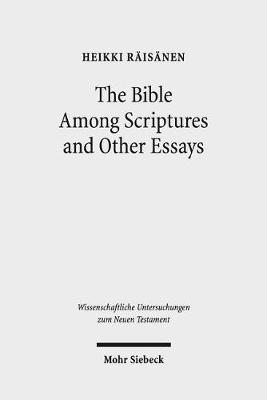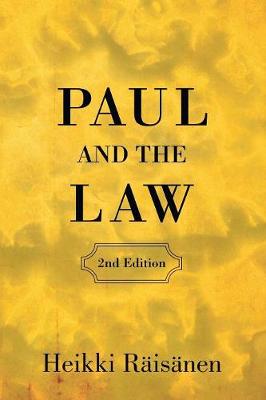Wissenschaftliche Untersuchungen Zum Neuen Testament
2 primary works • 3 total works
Book 29
The tensions and self-contradictions in Paul's statements on the Torah are analysed in this book in detail, which also critically discusses a vast body of scholarly literature on the subject. The contradictions in Paul cannot be explained away, neither by dialectical interpretive devices nor by way of development theories. Rather, they must be taken seriously as real contradictions and as pointers to Paul's unsolved theological problems. Different statements owe their origin largely to different needs, mostly polemical ones, arising in changing situations."Anyone who has studied Paul knows that probably the most complex problem he develops is his view of the law and its purpose. The beauty of Raisanen's work is that he recognizes and respects this complexity without himself becoming too dense to understand. R. finds that Paul's radicalized, negative criticism of the law is peculiar to him, unparalleled in the NT and without precedent in Jewish thought. With careful, patient examination of various contexts, R. leads his readers to see that Paul has an oscillating, even inconsistent view of the law. [...] This book is well-written in clear, readable English. It is an important book, recommended to any serious student of Paul. Its strength is in R.'s willingness to abandon preconceptions of what Paul's view on the law should be according to some consistent plan and in allowing Paul to speak for himself." Mary Ann Getty in The Catholic Biblical Quarterly 47 (1985).
Book 392
The essays by Heikki Raisanen (1941-2015) collected in this volume deal with a broad array of topics, ranging from early Christian identities to bibliodrama and other modern-day approaches to the scriptures. The exegetical studies in the first part explore issues related to early Christian eschatology, virginal conception, and Paul's complex argumentation about the Jews and their salvation in Romans 9-11. The essays on ancient and modern interpretations of the Bible in the second part pay special attention to ethical issues, address the "dark sides" of its reception, and discuss the biblical interpretations of Marcion and Joseph Smith. The third section comprises studies on the Bible and Qur'an, while the concluding chapter provides a comprehensive description of the Bible as scripture from a comparative perspective.


